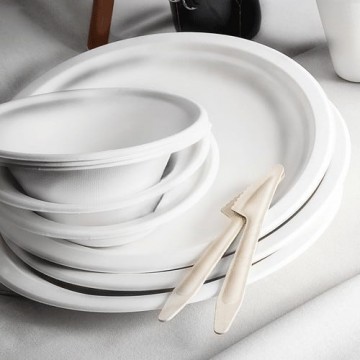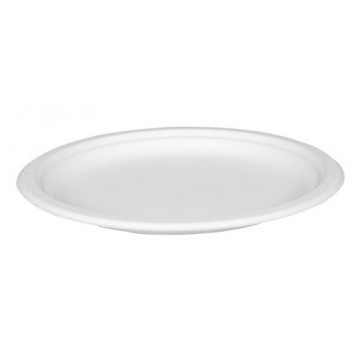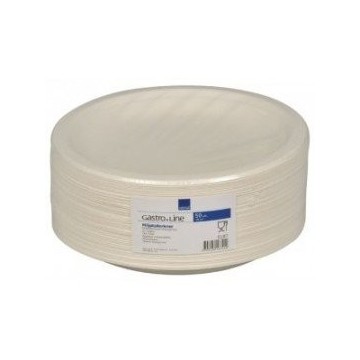Plates
There are 12 products.
Paper plate, white, Ø18 cm, 100pcs, ABENA
Paper plate, white, Ø15 cm, 100pcs, ABENA
Sugar cane square plate, 26x26 cm, 50 pcs
Sugar cane square plate, 20x20 cm, 50 pcs
Sugar cane square plate, 16x16 cm, 50 pcs
Paper plate, white, Ø23 cm, 100pcs
Sausage tray, paperboard, 10x16 cm, 250 pcs
Sausage tray, white, paperboard, 13x20 cm, 250pcs
Disposable Plates: How to Choose the Right Ones?
Disposable plates have become an essential part of events, picnics, catering, and everyday convenience. They save time, eliminate dishwashing, and ensure hassle-free food serving. However, when choosing disposable plates, it’s worth considering not only their practicality but also their material, design, and environmental impact.
What Types of Disposable Plates Should You Choose?
The choice depends on their purpose: are they meant for parties, catering, or casual family gatherings? It’s also important to evaluate their material, size, and durability.
Paper Disposable Plates
Paper plates are one of the most popular choices due to their light weight and easy disposal. They are perfect for snacks, desserts, and light meals. Eco-friendly options are often made from recycled or certified paper.
Plastic Disposable Plates
Plastic plates are more durable and resistant to moisture, making them ideal for hot or liquid dishes. However, to reduce plastic’s environmental impact, it’s better to choose biodegradable or reusable plastic options.
Eco-Friendly Disposable Plates
Growing environmental awareness has increased the popularity of plates made from bamboo, sugarcane fiber, or other biodegradable materials. These plates not only look stylish but also break down naturally when composted.
How to Choose the Right Size and Shape?
Disposable plates come in various sizes and shapes – from small dessert plates to large dinner plates.
Small Plates for Appetizers
Perfect for snacks, desserts, and small portions. These plates are often used at buffets and light receptions.
Medium Dinner Plates
A universal choice suitable for most meals – from meats to salads. They are often used for family gatherings and events.
Large and Deep Plates
These plates are perfect for serving hot or liquid dishes. Deep plates are especially convenient for soups, stews, or pasta.
What to Know About the Environmental Impact of Disposable Plates?
Disposable plates can have a significant environmental impact, so it’s important to consider their sustainability and disposal options.
Biodegradable Plates
They decompose quickly and can be composted. This is an excellent choice for those who want to reduce their ecological footprint.
Reusable Plates
While technically not single-use, certain plastic plates can be reused several times, helping reduce overall waste.
Certified Products
Look for plates with eco-certifications or recycling labels – this ensures that the products are made following sustainable production practices.













